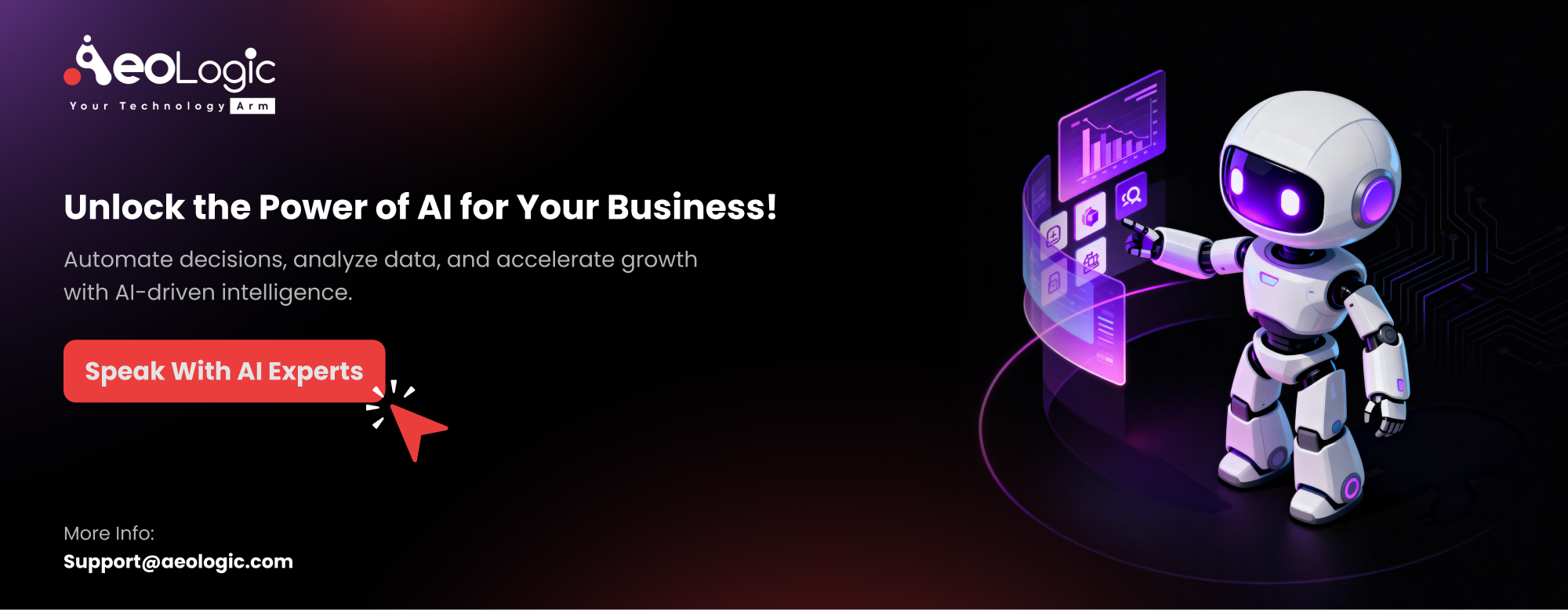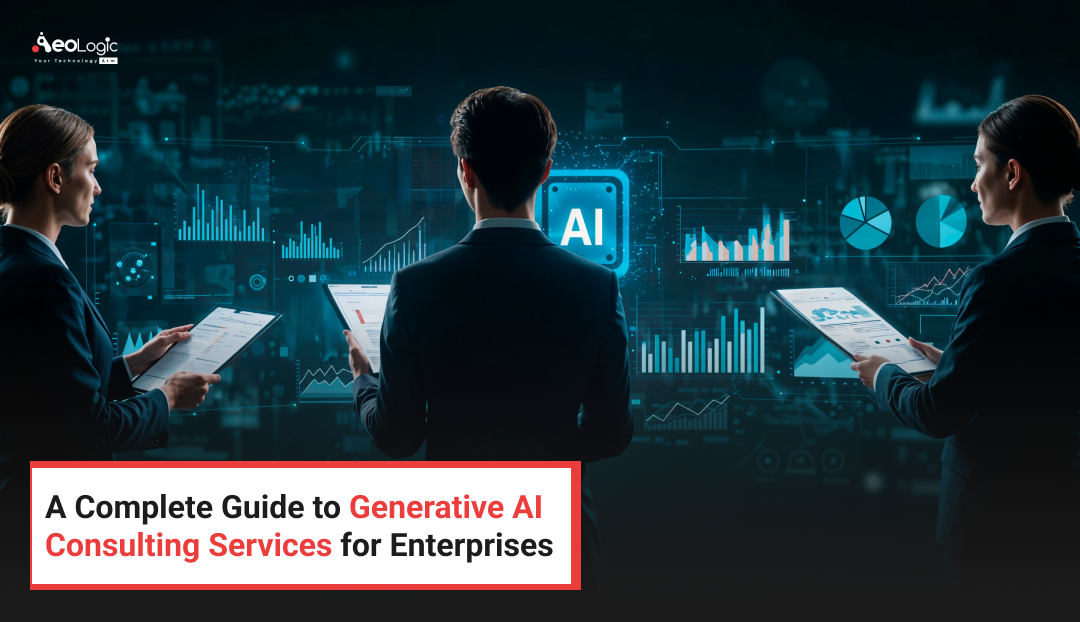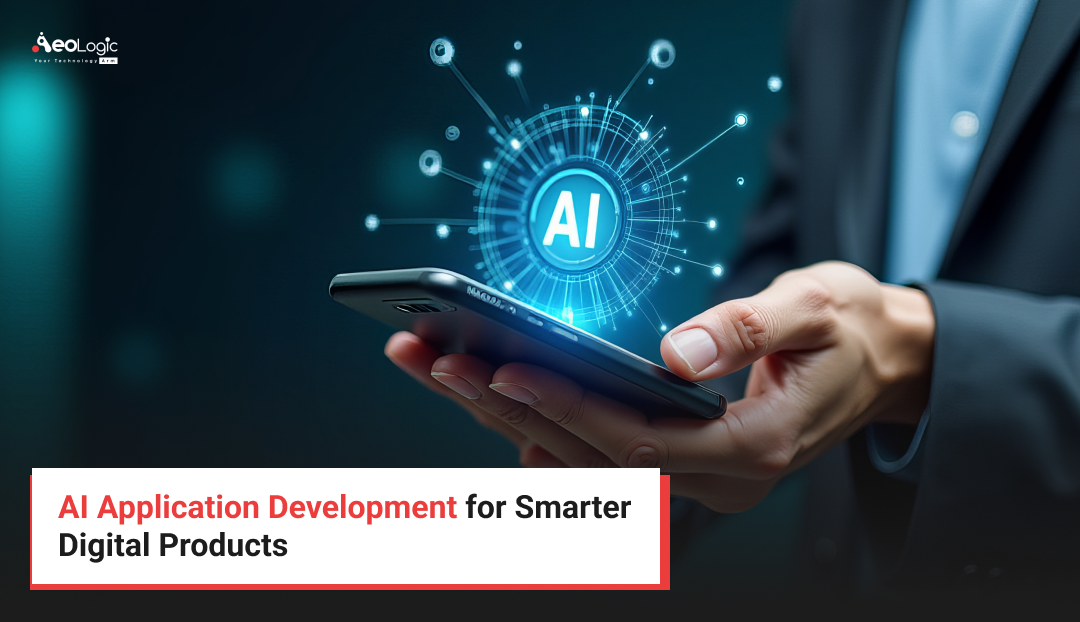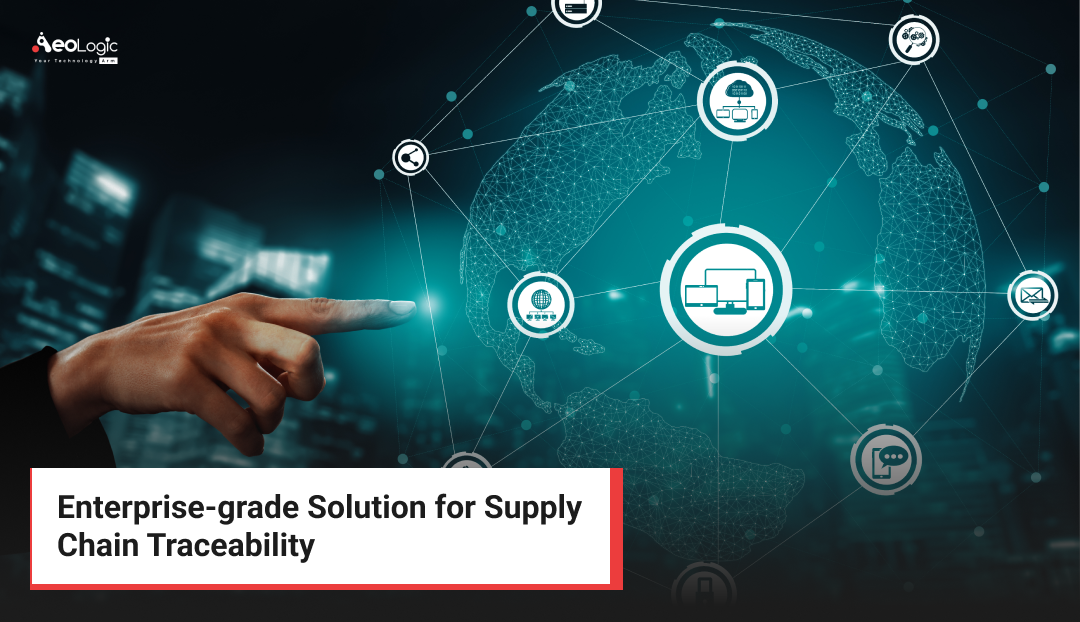The term “future technology” no longer applies to generative AI. It’s here, it’s powerful, and it’s already reshaping how enterprises operate, compete, and innovate. From automating end-to-end workflows to creating completely new revenue opportunities, Generative AI Consulting Services have become a strategic priority for large enterprises worldwide. Today, businesses don’t just want AI — they need enterprise-grade solutions that integrate seamlessly with their operations and deliver measurable business outcomes.
This is exactly where the real challenge begins. Most enterprises struggle not with adopting AI tools, but with adopting them the right way. They need a clear roadmap, governance structure, scalable infrastructure, and an implementation strategy aligned with business goals. Without expert guidance, organizations risk making costly mistakes, choosing the wrong models, or implementing AI in silos — leading to slow adoption and poor results.
By providing end-to-end enterprise generative AI solutions, customized frameworks, implementation support, and strategic AI transformation services, companies such as Aeologic Technologies are assisting businesses in navigating this evolution. Consulting is essential whether a company wants to develop AI-powered products, automate internal processes, or produce highly customized user experiences.
What Are Generative AI Consulting Services?
Businesses can plan, develop, implement, and scale GenAI solutions across business functions with the aid of Generative AI Consulting Services. Consulting guarantees that AI is implemented strategically and safely rather than haphazardly.
Usually, these services consist of:
Roadmapping & AI Strategy
Establishing a 12- to 24-month roadmap, architecture, and clear enterprise AI strategy.
Evaluation of Enterprise AI Readiness
Assessing workforce capability, data maturity, infrastructure, and compliance.
Integration of AI for Businesses
Integrating GenAI into current enterprise systems, workflows, and applications.
Developing and Improving GenAI Models
Constructing or modifying models such as domain-specific models, conversational agents, vision models, and LLMs.
Implementing Generative AI
Implementing product features, automations, and AI tools in a manufacturing setting.
AI Security, Governance, and Compliance
Ensuring risk reduction, data privacy, and responsible AI use.
Training, Adoption, and Change Management
Assisting groups in practically learning and implementing AI.
Consulting is about matching AI investments with quantifiable business value, not about implementing a single model.
Why Businesses Today Require Generative AI Consulting Services
Large datasets, legacy systems, multi-region operations, stringent compliance requirements, and intricate business procedures are among the difficulties faced by enterprises that smaller businesses do not.
Businesses can address these issues with the aid of generative AI consulting by:
Quicker Adoption of AI
The majority of businesses experiment for months with no real results. Implementation times are shortened from months to weeks thanks to the frameworks and accelerators provided by consultants.
A high return on investment from AI
A consultant makes sure AI use cases are linked to results, such as increased revenue, automation, cost savings, or better customer experience.
Diminished Technical Dangers
Enterprise trust can be harmed by problems like bias, hallucinations, privacy violations, or system malfunctions. The proper safeguards are ensured by consulting.
Improved Enterprise System Integration
ERP (SAP, Oracle), CRM (Salesforce), HRMS, supply chain systems, data lakes, and cloud platforms are examples of this.
Availability of Expert AI Talent
Talent for enterprise AI is expensive and hard to come by. Without starting from scratch to create an internal AI lab, consulting provides you with instant access to top-tier expertise.
Steer clear of compliance pitfalls
GDPR, HIPAA, the AI Act, SOC2, and internal governance frameworks are examples of how AI policies are changing. To remain compliant, businesses require professional assistance.
All of the aforementioned issues are resolved by generative AI consulting, which guarantees that AI becomes a growth engine rather than a risk.
Key Components of Enterprise Generative AI Solutions
Adopting generative AI for large organizations involves much more than just adding a chatbot. The following essential elements make up true enterprise generative AI solutions:
Consulting for Enterprise AI Strategies
This serves as the basis. Enterprise AI initiatives become fragmented, uneven, and expensive in the absence of a plan.
A robust AI approach consists of:
- Business objectives and AI alignment
- Setting priorities for AI use cases
- Data preparedness
- Cloud, edge, and hybrid AI infrastructure
- Model selection (proprietary models, domain models, and LLMs)
- Strategy for risk and governance
- Frameworks for budgets
- Development of AI Centers of Excellence (CoE)
For example, Aeologic Technologies employs a structured AI-first strategy model that prioritizes sustainable scale and outcome-driven use cases over haphazard experimentation.
Services for AI Transformation
AI transformation extends beyond specific initiatives. It modifies the way a business functions.
Among these services are:
Workflow AI-ification
Re-designing current processes to incorporate AI.
Automation on a Large Scale
Automating document processing, content production, customer service, analytics, and more with GenAI.
Modernization of Legacy
Updating antiquated systems to make them AI-ready.
Enabling Organizational Change
AI governance, process updates, and team training.
A well-thought-out AI transformation program can boost departmental productivity by 20–40%.
AI Integration for Businesses
Integration is where many enterprise AI projects fail. Consultants ensure seamless connection between AI models and:
- ERPs (Oracle, SAP)
- CRMs (HubSpot, Salesforce)
- Data warehouses (Azure, BigQuery, and Snowflake)
- Tools for communication
- Internal databases of knowledge
- Systems powered by APIs
For instance, a multinational manufacturing company automated purchase order approvals by integrating generative AI into its ERP, which led to 60% faster decision-making.
Application of Generative AI
This includes the creation and application of AI solutions in actual business settings.
Implementation consists of:
- Optimizing LLMs
- Retrieval Augmented Generation (RAG) configuration
- AI agents
- Copilots that are domain-specific
- Systems for document intelligence
- Chatbots with AI
- Automation driven by GenAI
An excellent implementation partner, such as Aeologic Technologies, guarantees enterprise-grade security, scalability, accuracy, and dependability.

Use Cases for Enterprises: Where Generative AI Consulting Offers the Best Return on Investment
This is where the true worth emerges. These are actual business situations where consultants assist in obtaining quantifiable ROI.
Automation of Customer Service
In addition to lowering ticket loads and increasing response accuracy, generative AI assistants offer round-the-clock assistance.
For instance:
An AI assistant trained on proprietary data was used by a telecom giant to automate 65% of incoming support queries.
Customization of Sales and Marketing
AI is capable of producing:
- Customized email sequences
- campaigns with a specific focus
- Astute suggestions
- Customer insights in real time
Human Resources and Talent Management
AI copilots automate HR duties such as:
- Examining resumes
- Creating job descriptions
- Responding to questions from employees
- Support for training
Optimizing the Supply Chain
AI that is generative can forecast:
- Variations in demand
- Possible interruptions
- Inventory needs
- Risks associated with suppliers
Every year, this helps businesses save millions of dollars.
Management of Enterprise Knowledge
Knowledge assistants driven by AI provide workers with immediate access to:
- SOPs
- Manuals for products
- Guidelines for compliance
- Internal records
R&D and Product Development
LLMs promote innovation through:
- Creating concepts for designs
- Conducting simulations
- Helping with the documentation
- Cutting down on time to market
How Aeologic Technologies Provides Generative AI Consulting at the Enterprise Level
Because of Aeologic Technologies extensive experience, robust engineering culture, and ability to deliver scalable enterprise AI systems, many businesses have faith in them.
Their consulting methodology consists of:
Blueprint for Discovery and AI Strategy
Comprehending corporate objectives and creating a long-term plan.
AI Preparedness & Data Evaluation
Assessing the gaps in operational workflows, tech stacks, and data structures.
Prioritizing Use Cases
Choosing low-risk, high-impact use cases to achieve rapid return on investment.
Model blueprinting and architecture
Selecting between custom-trained models, LLM APIs, or open-source models.
Pilot → Scale Structure
Start small, track outcomes, and then grow to departments.
Risk, Governance, and Compliance
Ensuring the safety, morality, and compliance of enterprise AI.
Predictable results, reduced risks, and long-term value creation are guaranteed by this methodical approach.
Typical Problems Businesses Face (and How Consulting Solves Them)
Insufficient AI Guidance
Solution: A strategy and roadmap linked to business objectives are developed by consultants.
Poor Data Quality and Data Silos
Solution: Assessments of AI readiness combined with data engineering projects.
Complexity of Integration
Solution: Modular architecture and API-driven integration frameworks.
Concerns about Governance, Security, and Privacy
Solution: Strong risk frameworks, compliance procedures, and AI governance policies
Expanding Past Pilot Initiatives
Solution: CoE development combined with enterprise-wide AI adoption frameworks.
The Best Ways to Implement Generative AI Successfully in Businesses
Massive value can be unlocked by generative AI, but only if it is used properly. Businesses that approach AI with a methodical and strategic approach frequently experience faster innovation cycles, smoother adoption, and higher ROI. Leading consulting firms like Aeologic Technologies adhere to the industry-tested best practices listed below:
Begin with a Low-Risk, High-Impact Use Case
Many businesses make the error of attempting to implement AI everywhere at once. This results in:
- Waste of resources
- Integration difficulties
- Slow uptake
- Resistance from employees
Best Practice:
Choose one or two use cases with quantifiable return on investment to start small. Examples consist of:
- Automation of customer service
- Summary of the document
- Knowledge base search tool
- Automation of internal workflow
Scale horizontally across departments after early successes are attained.
Construct an AI Center of Excellence (CoE)
The central hub for AI vision, governance, and implementation is an AI CoE.
Advantages of an AI CoE:
- Standardized AI procedures
- Centralized administration
- hub for knowledge sharing
- Quicker decision-making
- Decreased dangers and duplications
As part of their enterprise AI transformation services, Aeologic Technologies frequently assists businesses in establishing CoEs.
Invest in Data Infrastructure of Enterprise Grade
The quality of the underlying data determines how powerful generative AI is. Even the best models will yield inconsistent results in the absence of clean, organized, secure data.
Among the top priorities are:
- Contemporary data warehouses and lakes
- Frameworks for data quality
- Management of metadata
- Layers of secure data access
- Pipelines for real-time data
Data should be viewed by businesses as a strategic asset rather than an afterthought.
Put in place responsible AI policies and strong governance
This comprises:
- Frameworks for ethics
- Systems for detecting bias
- Monitoring of models
- Access control based on roles
- Data compliance (GDPR, HIPAA, AI Act, SOC2)
Long-term adoption, dependability, and trust are guaranteed by responsible AI.
Use a Hybrid Model: Open Source + Proprietary
Many businesses rely on a mix of:
- Commercial LLMs (Google, Anthropic, OpenAI)
- Models that are open-source (Llama, Mistral, Falcon)
- Custom models that are domain-specific
This hybrid approach provides increased security, reduced expenses, and flexibility.
Select Partners with Extensive Business Knowledge
For AI to be successful, consultants must comprehend:
- Complexities of the industry
- Actual business limitations
- Challenges with compliance
- Connectivity to legacy systems
This is where companies like Aeologic Technologies excel — they combine engineering depth with enterprise understanding.
An Effective Structure for Generative AI Transformation at Enterprise Level
Consulting partners use a six-stage transformation framework to assist businesses in implementing AI in a predictable, outcome-driven manner:
Stage 1: AI Vision Alignment & Discovery
The consulting team works with department heads, executives, and stakeholders to comprehend:
- Business objectives
- Present-day difficulties
- Priorities for strategy
- Possibilities for the impact of AI
This phase guarantees that AI promotes business transformation rather than merely technological experimentation.
Stage 2: Evaluation of Enterprise AI Readiness
This comprises:
- Data examination
- Infrastructure evaluation
- Compatibility of tech stacks
- Evaluation of security and privacy
- Assessment of workforce skills
Result: A clear picture of the company’s level of AI maturity.
Stage 3: Identification and Prioritization of Use Cases
Consultants use a tried-and-true matrix to prioritize 50–100+ potential use cases from various departments.
- Elevated ROI
- Minimal danger
- Very little reliance
- Quick to put into practice
This guarantees quick, early victories.
Stage 4: Model Selection & Architecture
The architecture might consist of:
- RAG systems
- Individual LLMs
- Optimized models
- On-site implementation
- Hybrid or cloud-based deployment
- Orchestration of AI agents
Businesses select a strategy based on cost, scale, performance, and security.
Stage 5: Development and Validation of Pilots
A modest, regulated deployment is designed to:
- Verify the viability
- Evaluate performance
- Determine possible hazards
- Gather feedback from actual users
The risk of failure during a full-scale rollout is decreased by this “pilot-first” strategy.
Stage 6: Scaling and Enterprise-Wide Deployment
This comprises:
- Employee training
- Developing workflows for governance
- Cross-system integration
- Monitoring performance
- Expanding to additional departments
Scaling frameworks that ensure seamless, secure enterprise-wide adoption are created by consultants such as Aeologic Technologies.
Typical Errors Businesses Make (and How to Prevent Them)
Despite its enormous potential, enterprise AI adoption frequently fails because of a few predictable errors. Let’s examine these and how they can be avoided with Generative AI Consulting Services.
Mistake 1: Beginning Without a Clear Plan
Problem:
Without a long-term plan, teams dive headfirst into AI experiments.
Solution:
Without a long-term plan, teams dive headfirst into AI experiments.
Mistake 2: Excessive Dependency on a Single Model or Supplier
Problem:
High prices and little flexibility result from vendor lock-in.
Solution:
Employ a hybrid LLM approach that combines proprietary and open-source models.
Mistake 3: Disregarding Data Quality
Problem:
Inaccurate model outputs are caused by low-quality data.
Solution:
Investing in enterprise data engineering and governance.
Mistake 4: Scaling Too Quickly
Problem:
Businesses expand quickly without conducting adequate pilot testing.
Solution:
Deploy in stages: pilot, validate, and scale.
Mistake 5: Ignoring Security and Compliance
Problem:
Compliance infractions or sensitive enterprise data leaks.
Solution:
Strict AI risk management frameworks should be put in place.
Mistake 6: Absence of employee training or change management
Problem:
Lack of clarity or fear prevents teams from implementing AI.
Solution:
Conduct practical workshops, documentation, and training.
Applications of Generative AI Consulting in Particular Industries
Every industry has different requirements. Here are some examples of businesses where consulting has a significant impact.
Financial Services & Banking
Use cases:
- AI agents for fraud detection
- Individualized banking consultants
- Automation of regulatory compliance
- Information about documents for AML and KYC
Medical care
Use cases:
- Automation of medical documentation
- Copilots for patient care
- Support for clinical decision-making
- Diagnostic support
Production
Use cases:
- Predictive upkeep
- Using vision models for quality inspection
- Forecasting supply chain demand
- Production optimization powered by AI
E-commerce and retail
Use cases:
- Extremely customized suggestions
- Product tagging powered by AI
- Optimization of prices
- Forecasting inventories
Insurance
Use cases:
- Automation of claims processing
- Assistants for underwriting
- Summary of policy documents
Transportation & Logistics
Use cases:
- Route optimization
- Fleet AI surveillance
- Copilots that track in real time
How Businesses Calculate the Return on Investment from Generative AI Consulting Services
Value is measured clearly and quantitatively by successful AI programs.
Common ROI metrics:
Savings
Decreased manual labor, automated procedures, and improved operations.
Growth in Revenue
Upselling possibilities, tailored sales, and new AI-driven products.
Increased Productivity
Quicker processes and less time spent on monotonous work.
Decreased Mistakes
AI increases research, compliance, and data handling accuracy.
Quicker Time-to-Market
AI speeds up R&D, planning, coding, and design.
Better Client Experience
24/7 support, personalized services, faster resolution.
Businesses that use structured consulting frameworks frequently see results ten times faster than those that experiment on their own.
Why Enterprise Generative AI Adoption Preferentially Chooses Aeologic Technologies as a Partner
What makes Aeologic Technologies unique is:
Extensive Technical Knowledge
Their engineering groups are experts in:
- Development of LLM
- Pipelines for RAG
- Orchestration of AI agents
- Personalized, refined models
- Multimodal AI + NLP + Vision
A solid grasp of enterprises
They have experience working in:
- BFSI
- Production
- Telecom
- Retail
- Medical care
- Government
Complete AI Transformation Services
From strategy to execution to scaling.
Safe, Moral, and Conscientious AI
Frameworks for international businesses that are prepared for compliance.
Customized, Results-Driven Implementation
Pay attention to quantifiable business value rather than just technology.
Conclusion
Generative AI is an engine for enterprise transformation, not just another fad in technology. It’s changing how companies function, innovate, and provide value.
However, the trip can be difficult:
- Data difficulties
- Model choice
- Risks associated with governance
- Integration challenges
- Management of change
- Problems with scalability
For businesses looking to use AI responsibly and extensively, generative AI consulting services have become essential.
Consulting guarantees:
- A sound plan
- ROI that is predictable
- Quicker execution
- Robust governance
- Smooth integration
- Long-term scalability
Businesses can confidently embrace AI and stay ahead in a quickly changing business landscape with the right partner, like Aeologic Technologies.
Organizations that innovate fearlessly, adopt responsibly, and scale wisely will win the future. Generative AI consulting is the bridge between AI potential and enterprise success.
FAQs
Q1. What are consulting services for generative AI?
Businesses can plan, develop, implement, and scale GenAI solutions like LLMs, AI copilots, automation tools, and domain-specific models with the aid of Generative AI Consulting Services. Strategy, execution, integration, governance, and training are all included.
Q2. What makes generative AI consulting necessary for businesses?
Due to the complexity of AI adoption. Businesses require advice on how to choose the best models, maintain security, optimize data, integrate with legacy systems, and achieve quantifiable ROI. Consulting expedites change and lowers risks.
Q3. Which sectors gain the most from generative AI solutions for enterprises?
BFSI, healthcare, manufacturing, retail, telecom, logistics, and insurance are just a few of the industries that gain. AI automation adds enormous value to each of their distinct workflows.
Q4. How much time does it take to implement AI?
It takes four to six weeks for small pilots. Depending on the complexity, number of integrations, data readiness, and governance requirements, an enterprise-wide deployment can take three to twelve months.
Q5. How do Aeologic Technologies contribute to the adoption of generative AI?
Strategy consulting, AI readiness evaluations, model development, RAG systems, automation, AI agents, and comprehensive transformation programs are just a few of the end-to-end enterprise generative AI solutions offered by Aeologic Technologies.
Q6. Are businesses able to create their own generative AI models?
Yes, but it requires a lot of resources. The majority of businesses employ a hybrid strategy that combines proprietary APIs, open-source models, and custom domain task fine-tuning. Consultants assist in selecting the best strategy.
Q7. What is the largest obstacle to businesses adopting AI?
Data quality and governance. Models fail in the absence of high-quality, secure, and organized data. That’s why AI readiness assessments are essential.

Manoj Kumar is a seasoned Digital Marketing Manager and passionate Tech Blogger with deep expertise in SEO, AI trends, and emerging digital technologies. He writes about innovative solutions that drive growth and transformation across industry.
Featured on – YOURSTORY | TECHSLING | ELEARNINGINDUSTRY | DATASCIENCECENTRAL | TIMESOFINDIA | MEDIUM | DATAFLOQ





